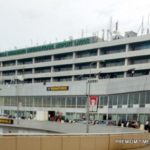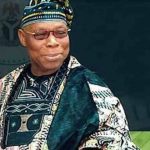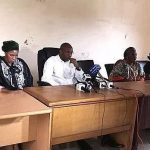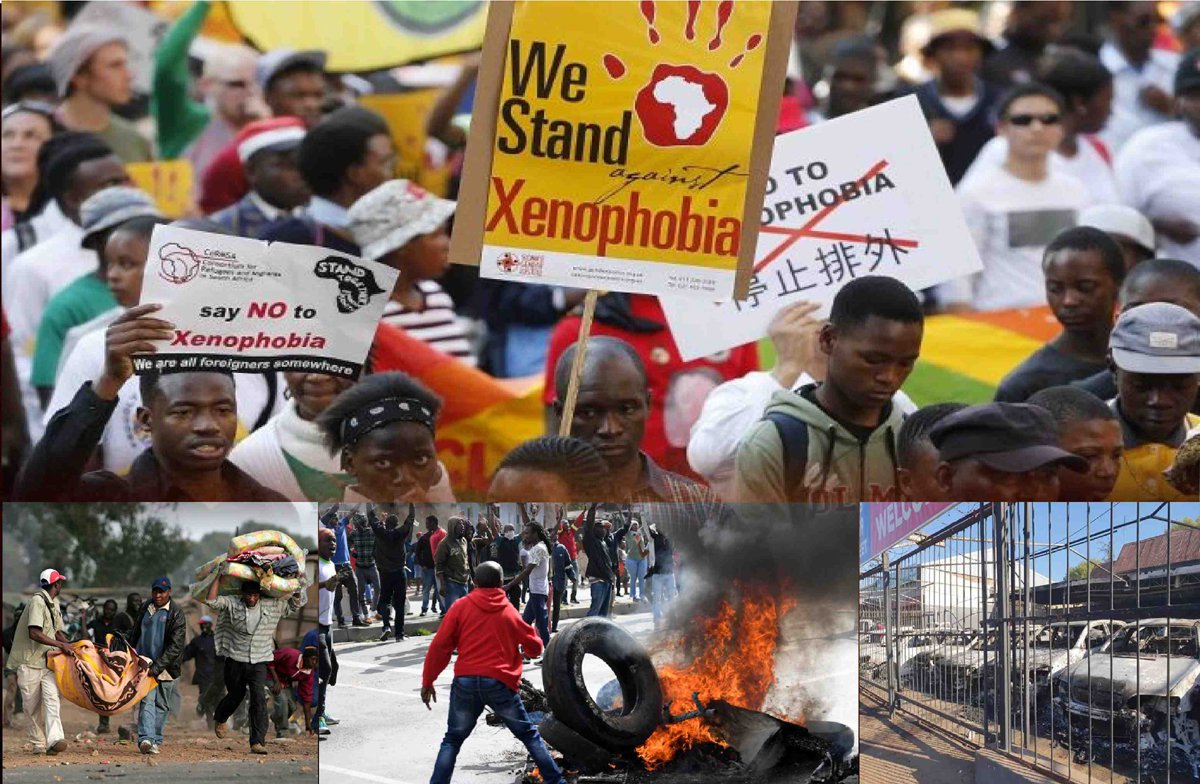
The Federal Government is locking horns with the South African government over the latter’s refusal to pay compensation to victims of xenophobic attacks in Johannesburg. The Rainbow Nation says its constitution does not permit such payment. What options are open to Nigeria in seeking redress for its citizens? ADEBISI ONANUGA asks lawyers
Last Tuesday, angry youths took to the streets in some parts of the country to protest the xenophobic attacks on Nigerians and other black immigrants in South Africa.
Property worth about N500 million, including cars, shops and businesses, especially those thought to be owned by South Africans, were either looted or destroyed in the violence that followed.
It was the first time youths would react violently to the attacks in South Africa. There were reported cases of violence and attack on Shoprite outlets in Lekki, PEP outlets in Surulere, MTN facilities in Lagos and in Uyo, the Akwa Ibom State capital and in Ibadan, the Oyo State capital.
A group of angry women, said to be relatives of those who fell victim to the attacks in South Africa, were said to have triggered the retaliatory attack in Lagos when they entered Shoprite at Lekki and began upturning shelves.
The protests followed the latest wave of violence in South Africa against African immigrants and foreign-owned businesses.
Last week, angry mobs in the Rainbow Nation looted, burned and vandalised shops, properties and vehicles owned by non-white immigrants.
At least 10 people lost their lives, including two immigrants, while at least 189 were arrested. The immigrant population in the country was 4,036,696 last year.
A June 28 United Nations (UN) report stated that there are only 27,326 Nigerian immigrants in the southern African country of 57.73 million.
Although many Nigerians are professionals, including doctors, nurses, lecturers, etc, majority of them are business people who have built their businesses from scratch. Some of this category of Nigerians are often accused of drug dealing and other crimes or taking their hosts’ women and usually bear the brunt of xenophobic attacks.
Observers have noted that similar riots took place in Johannesburg earlier this year. They described it as deliberate and part of a larger hostility towards Africans. Somalis, Zimbabweans and Mozambicans have also been victims of xenophobic attacks in South Africa over the years.
Attacks on foreign-owned shops have become regular occurrences that many have attributed to frustration, given the country’s high unemployment rate.
For instance, a major violence occurred in Durban in April when foreign nationals were attacked and displaced in five locations around the city..
Another attack on August 7 led to a confrontation between the police and inner-city traders, who the South African government stated were foreign nationals.
Xenophobic violence has thus become a regular feature of South Africa’s political landscape and during such violent attacks, people from other African countries, including Nigerians, have been regularly attacked, killed and their means of livelihood destroyed. As at last count, over 120 Nigerians are believed to have been killed between 2016 and this year.
Many observers have described the Johannesburg attacks as a huge blow for African countries that fought to liberate South Africa from apartheid.
Condemnations all the way
Both the Federal and the Lagos State governments called for restraint by the protesters.
In Abuja, President Muhammadu Buhari dispatched a delegation to South Africa to meet with its President Cyril Ramaphosa while Vice President Yemi Osinbajo condemned the killing of Nigerians, describing it as “unacceptable and unconscionable”.
Also, Minister of Foreign Affairs Geoffrey Onyema summoned the South African High Commissioner and demanded a halt to the killing of Nigerians and attacks on their businesses.
Other political leaders in the country have also called for an end to the attacks.
Senate President Ahmad Lawan, in a statement last week, said Nigeria has had enough of its citizens being targets of these attacks and would no longer tolerate hate crimes in any form against its citizens who are doing legitimate businesses in South Africa.
Lawan added: “The enormous contributions of Nigeria to this historic struggle are underscored by its recognition as a frontline state in the prolonged confrontation against the powerful racist regime that had held generations of Southern Africans in bondage and subhuman conditions.
”It is, therefore, an unacceptable irony that a section of South Africans would so soon after now, choose other Africans in their country as the targets of mindless violent attacks over frustrations for which the innocent victims have no control.”
Speaker, House of Representatives, Femi Gbajabiamila said the House might reconvene to discuss the matter.
Ramaphosa also condemned the Monday night violence in his country, saying that attacks on foreigners are “totally unacceptable” and “something completely against the ethos that we as South Africans espouse.”
The African Union Commission also condemned the violence. Its Chairman, Moussa Faki Mahamat, said the organisation supported South African’s efforts to restore law and order.
Boycott of South Africa events
The founder and chairman of Zenith Bank, Mr Jim Ovia, pulled out of the ongoing 2019 World Economic Forum (WEF) Africa taking place in Cape Town, South Africa following the attacks.
Ovia’s withdrawal from the WEF Africa was sequel to Nigerian government’s withdrawal from the event.
A presidential adviser, Bashir Ahmad, announced Nigeria’s boycott on Twitter. He said: “Nigerian government has boycotted the World Economic Forum being held in Cape Town, South Africa,” noting that some individuals would attend independently.
Vice President Yemi Osinbajo, who was billed to attend the annual summit of leaders and business figures, also cancelled his trip.
Songstress, Tiwa Savage also pulled out of a music festival organised by DSTV billed to take place in South Africa this month.
Comedian Bright Okpocha aka Basketmouth also cancelled his appearance at the upcoming Comic Choice Awards in South Africa.
In an Instagram post on his page @basketmouth, he wrote, “I am not sure how and when we got here.
“I won’t be attending the Comic Choice Awards this weekend in South Africa as scheduled.”
Star musician Burna Boy, also vowed to never set foot in the country again.
He said: “I have not set foot in SA since 2017. And I will not ever go to South Africa again for any reason until the South African government wakes the f**k up and performs a miracle because I don’t know how they can even possibly fix this.”
Demand for compensation for victims
The Federal Government last week demanded an end to the killing and called for compensation for the victims
Onyeama, at a joint briefing with the South African High Commissioner to Nigeria, Mr. Bobby Moroe, listed a proposal that includes security collaboration between both countries.
He, however, stated that issues of compensation for victims of xenophobic attack must first be addressed.
“In the first place, we must address the issue of compensation. There has to be accountability and there has to be responsibility for compensating all those Nigerians that have suffered loss and we are going to absolutely push forward,” Onyeama said.
The Federal Government and the House of Representatives’ insistence on compensation to Nigerians, was regardless of hints by Pretoria that it has no intention of paying.
Onyeama declared that Nigeria will challenge South Africa’s claims that its laws do not provide for such compensation.
Gbajabiamila, after an emergency session by the House of Representatives, said the Green Chamber had heard the “the cries of our citizens.
”Let no one be left in any doubt, we will seek and we will obtain by whatever means available, due restoration and recompense for all that has been lost in this latest conflagration and all the ones that have come before’’.
Why Nigeria is insisting on compensation
According to Onyeama compensation “is important despite the position of the South African government that there is no provision for that by their own laws.
“They will definitely be made to resort to other insurance companies or other private arrangements for that,” he told reporters after a meeting with the chairman of the Senate Committee on Diaspora, Senator Ajibola Bashiru.
Nevertheless, Onyeama noted that Nigeria would not severe relations with South Africa on the matter.
“The options that are being considered are weighty enough to ensure that the government of South Africa is alive to its responsibility on the rule of law, but not in any way relating to severance of ties,” he said.
What are Nigeria’s legal options against South Africa?
No doubt, xenophobic violence undermines the rule of law and a state that is complicit in undermining the rule of law is a danger to itself.
How best can the Federal Government handle the crisis? What legal options or otherwise are open for Nigeria to explore to get compensation for victims especially in view of South African’s rejection of demand for compensation of the victims?
Senior lawyers offer suggestions on how government can redress the situation.
Document killings and losses of victims
Sylva Ogwemoh (SAN) said the killing of Nigerians living in South Africa is barbaric and most unfortunate and must be condemned by all right-thinking persons.
He regretted that government did not do enough when these killings started a few years ago. Ogwemoh noted that the killings started on a low scale and now it has spread to several cities in South Africa.
“One of the responsibilities of a government and indeed a foreign high commission in any country is the protection of the country’s citizens in a country of its operations. Therefore, the life of a single Nigerian in any foreign country is important and whenever anything is done by another country that affects the life of a Nigerian in that country, our high commission and indeed our government must rise up and ensure that whatever led to the killing of that Nigerian is addressed and where possible sanctions are imposed through the court system or by diplomatic means.
“In the present situation where the South African Government has rejected the request for compensation, the Nigerian Government should clearly document the killings and the losses incurred by its citizens in South Africa and approach the court in South Africa for a redress.
“I recall the African Charter on Human and People’s Rights has adequate provisions for the protection of the rights of African citizens.
“This could be a test case in determining the functionality or otherwise of the Judiciary in South Africa in the protection of the rights of citizens”, he said.
‘Lodge complaint at International Criminal Court’
Law lecturer, Faculty of Law, University of Lagos (UNILAG), Akoka, Wahab Shittu described xenophobic attacks on Nigerians in South Africa as “savagery, brutish, callous and inhuman atrocity of the worst order”.
He noted that Nigeria reacted appropriately by recalling Nigeria’s Ambassador to South Africa and withdrawing from the ongoing economic forum in South Africa.
He urged the Federal Government to go even further.
Shittu said: “Firstly, we need to address a world press conference to register our displeasure at the savagery. We need to formally lodge a criminal complaint at the International Criminal Court of Justice and demand justice and compensation for the victims.
“The South African authorities must be made to apologise, assure of the safety of Nigerians and undertake to pay compensation and prosecute those involved in these serial atrocities.
“We need to sensitise the African Union, the Commonwealth, United Nations and the international community on the atrocities going on in South Africa and the urgency of sanctions against South Africa.”
He added: ”Nigeria must examine all options to get justice for Nigeria and Nigerians for this savagery and man’s inhumanity to man.”
‘Approach African Court on Human and Peoples Right’
For Abayomi Omoyinmi, a member of Ogun State Judicial Service Commission, South Africa should be sued at the African Court on Human and Peoples Right in Arusha, Tanzania.
“The Federal Government should proceed to the African Court on Human and Peoples Right to enforce the fundamental rights and freedoms of Nigerians affected by anti-Nigerians violence since Nigeria is a signatory to the charter of 1983”.
Omoyinmi further argued: “It is an elementary principle under the international law that any country is entitled to protect its citizens when injured by any act/s contrary to international law committed and or contravene by another country.
“This is time to ensure that the South Africa and its subjects observe and respect the rules of international law. There has to be protection from the court for Nigerians in this respect against gross abuse of international human right norms.
“The indiscriminate arrest and violation of the fundamental rights and freedom of Nigerians in South Africa is a clear violation of Article 55(c) of the United Nations Charter and other international human rights.”
‘Nigeria may activate UN system to impose sanctions on South Africa’
Activist-lawyer, Emeka Nwadioke, maintained that international law prohibits discrimination based on race, colour, sex (including sexual orientation), language, religion, political or other opinion, national or social origin, property, birth or other status.
He said national governments have an obligation under international law especially the International Convention on the Elimination of All Forms of Racial Discrimination (ICERD) to protect all persons from racial discrimination.
According to him, South Africa has failed to meet its international obligations by these festering attacks and the seeming impunity which has attended same.
Nwadioke argued: “It is equally instructive that President Cyril Ramaphosa was cited during campaigns for making racially induced remarks against migrants. Now that the chickens have come home to roost, he has a unique moral burden to redress this malaise.
“If he fails in this task, given his seeming lack of political will to address the crises, Nigeria may initiate sundry measures including but not limited to diplomatic, informational, military and economic actions to compel South Africa to abide by its international obligations”, he advised.
Said Nwadioke: “The least that is expected of South Africa is to make adequate reparations to victims of this reckless and hate-induced violence, and ensure that the perpetrators are speedily brought to justice to serve as a deterrent to others. Otherwise, Nigeria may recall its ambassador to South Africa, expel South Africa’s High Commissioner to Nigeria, impose economic sanctions on South Africa or as a last resort declare the violence as an ‘act of aggression’ or ‘act of war’ for the purpose of levying military action to protect its citizens.
“It may also activate the United Nations system towards imposing sanctions on South Africa as well as litigate the matter using the international judicial framework. Affected persons may also bring petitions before regional forums to seek redress for their injuries”, he stated.
You may be interested

My Goal Was To Achieve Success With Ten Hag At Man United –De Ligt
Webby - November 14, 2024Netherlands international Matthijs de Ligt has suggested Erik ten Hag didn’t get the breaks he needed to keep his job…

I Want To Take My Game To New Level –Lookman
Webby - November 13, 2024Super Eagles winger Ademola Lookman has reiterated his commitment to take his game to the next level.The Nigerian international, who…

AFCON 2025Q: Benin Republic Hit By Another Injury Blow
Webby - November 13, 2024Benin Republic will be without two more players for their 2025 Africa Cup of Nations qualifying matches against Nigeria and…








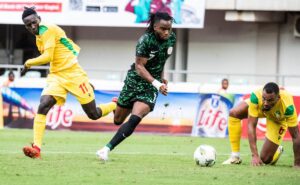





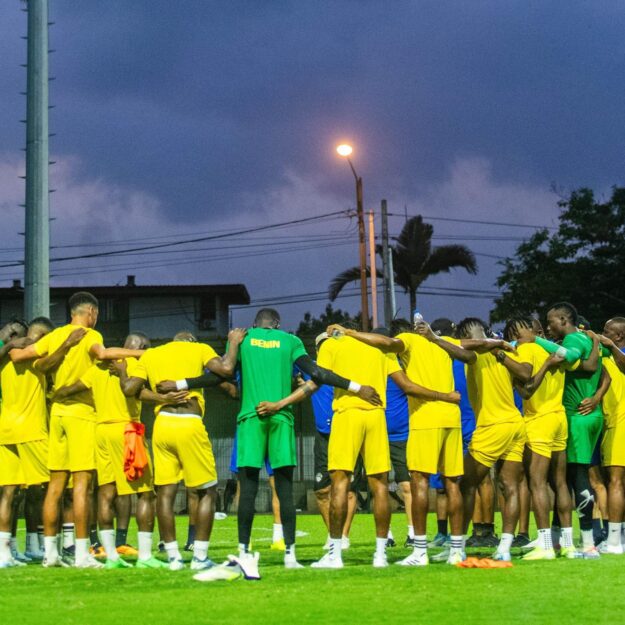



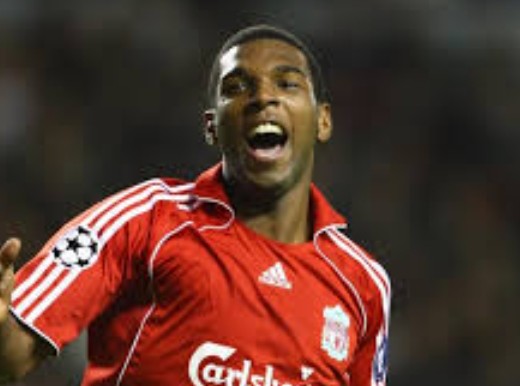
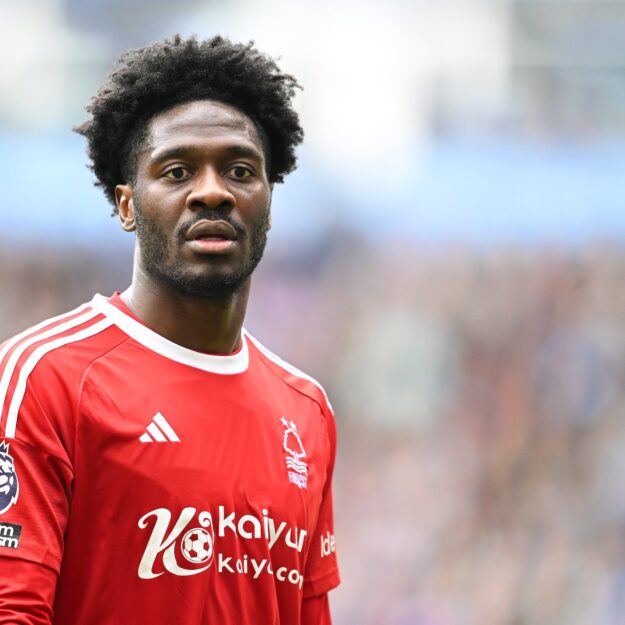
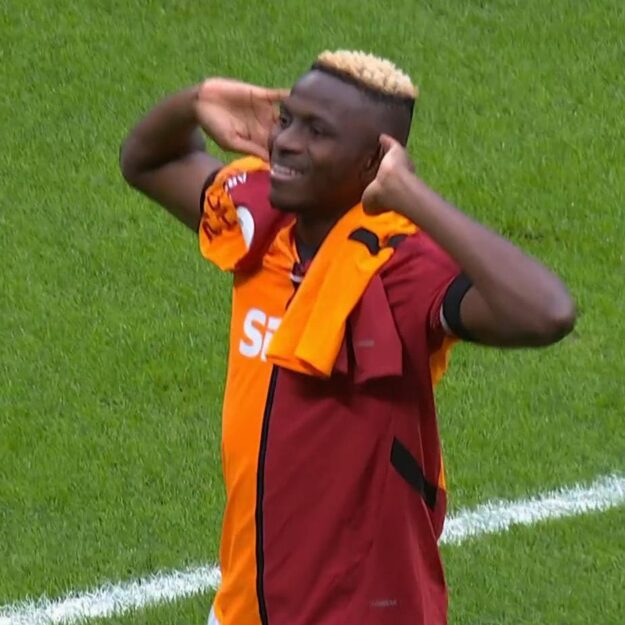


![American Pastor, David Wilson Seen Eating The Box Of Woman Who Isn’t His Wife [Video]](https://onlinenigeria.com/wp-content/uploads/2019/10/american-pastor-david-wilson-seen-eating-the-box-of-woman-who-isnt-his-wife-video-150x150.jpg)




